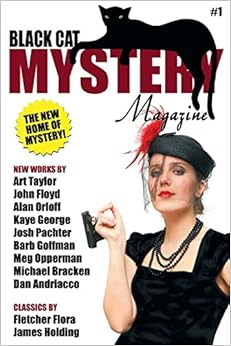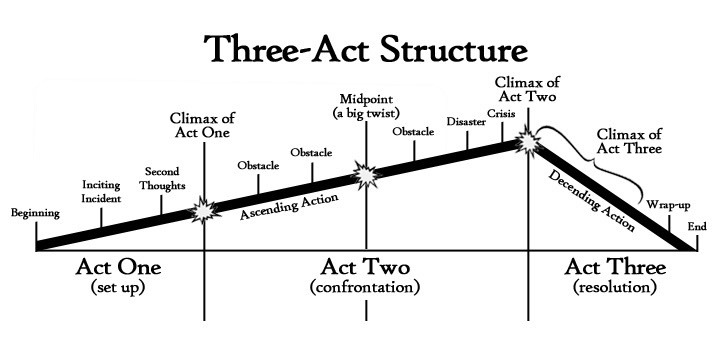Recently, a jovial colleague asked me if I was a good teacher or an evil one.
I'm definitely on the kind side of the equation. The last thing I want to be is a Dream Killer. But even the kindest, most dedicated writing teachers can get frustrated. So when a colleague suggested I rant on these pages, I gracefully accepted. (With the sort of grace that might be associated with a herd of stampeding mastodons.)
So here are my top ten peeves as a writing teacher:
THE OBVIOUS
1. "I don't need no stinkin' genre" - aka Students who turn their noses up at the genres.
In addition to basic and advanced writing skills, I teach the genres in my Crafting a Novel course. Meaning, we deconstruct each of the main genres of fiction (mystery, thriller, romance, sci-fi, fantasy, western, literary...) to see what publishers expect. This is particularly important when it comes to endings. Mickey Spillane said those famous words: "Your first page sells this book. Your last page sells the next."
Most publishers categorize the books they accept into genres. Most readers stick to a few genres they like best for their reading pleasure. So it stands to reason that if you can slot your work into an already active genre, you have a better chance of getting published and read.
Many students refuse to classify their work. They feel it is 'selling out' to do so. (Yes, I've heard this frequently.) They don't want to conform or be associated with a genre that has a formula. (One day, I hope to discover that formula. I'll be rich.)
So I often start out with half a class that claims to be writing literary fiction, even though not a single student can name a contemporary literary book they've actually read. *pass the scotch*
2. The memoir disguised as fiction.
These students have no interest in writing fiction. They really only want to write one book ever, and that is the story of their life. (Ironically, many of these students are only twenty years old...sigh.) But they know that memoirs of unknown people don't sell well, so they're going to write it as a novel. Because then it will be a bestseller.
Here's what I tell them: What happens to you in real life - no matter how dramatic and emotional it is for you - usually doesn't make a good novel. Novels are stories. Stories have endings, and readers expect satisfactory endings. Real life rarely gives you those endings, and so you will have to make something up.
If you want to write your life story, go for it. Take a memoir writing class.
3. "My editor will fix this" - Students who think grammar and punctuation are not important.
Someone else will fix that. They even expect me - the teacher - to copy edit their work. Or at least to ignore all seventeen errors on the first page when I am marking. *hits head against desk*
I should really put this under the 'baffling' category. If you are an artist or craftsman, you need to learn the tools of your trade. Writers deal in words; our most important tools are grammar, punctuation and diction. How could you expect to become a writer without mastering the tools of our trade?
4. The Hunger Games clone.
I can't tell you how many times students in my classes have come determined to rewrite The Hunger Games with different character names on a different planet. Yes, I'm picking on Hunger Games, because it seems to be an endemic obsession with my younger students.
What I'm really talking about here is the sheer number of people who want to be writers but really can't come up with a new way to say things. Yes, you can write a new spin on an old plot. But it has to be something we haven't seen before.
There are just some plots we are absolutely sick of seeing. For me, it's the 'harvesting organs' plot. Almost every class I've taught has someone in it who is writing a story about killing people to sell their organs. It's been done, I tell them. I can't think of a new angle that hasn't been done and done well. Enough, already. Write something else. Please, leave the poor organs where they are.
THE BAFFLING
5. The Preachers: Students who really want to teach other people lessons.
And that's all they want to do. Akin to the memoir, these students come to class with a cause, often an environmental one. They want to write a novel that teaches the rest of us the importance of reuse and recycle. Or the evils of eating meat.
Recently, I had a woman join my fiction class for the express purpose of teaching people how to manage their finances better. She thought if she wrote novels about people going down the tubes financially, and they being bailed out by lessons from a friendly banker (like herself) it would get her message across.
All noble. But the problem is: people read fiction to be entertained. They don't want to be lectured. If your entire goal is to teach people a lesson, probably you should take a nonfiction course. Maybe a PR one. Or here's a novel <sic> idea: become a teacher.
6. Literary Snowflakes - Students who ignore publisher guidelines.
"A typical publisher guideline for novels is 70,000-80,000 words? Well my book is 150,000, and I don't need to worry about that because they will love it. Too bad if it doesn't fit their print run and genre guidelines. They'll make an exception for me."
I don't want to make this a generational thing. Okay, hell yes - maybe I should come clean. I come from a generation that was booted out of the house at 18 and told to make a living. 'Special' wasn't a concept back when we used slide rules instead of calculators.
Thing is, these students don't believe me. They simply don't believe that they can't write exactly what they want and not get published. And I'm breaking their hearts when I tell them this:
Publishers buy what readers want to read. Not what writers want to write.
7. Students who set out to deliberately break the rules in order to become famous.
There are many ways to tell a story. We have some rules on viewpoint, and we discuss what they
are, the reasons for them, and why you don't want to break them. The we discuss why you might WANT to break them. Apparently this isn't enough. *sobs into sleeve*
I have some students who set out to break every rule they can think of because they want to be different. "To hell with the readers. I'll head-hop if I want. And if Gone Girl has two first person viewpoints, my book is going to have seventeen! No one will have seen anything like it before. They will think I'm brilliant."
Never mind that the prose is unreadable. Or that we don't have a clear protagonist, and thus don't know whom to root for. e.e.cummings did it. Why can't they?
8. Students who come to class every week but don't write anything.
They love the class. Never miss a week. But struggle to complete one chapter by the end of term. Not only that, this isn't the first fiction writing class they've taken. They specialize in writers' workshops and retreats.
It seems baffling, but some people like to hobby as aspiring writers. They learn all about writing but never actually write. Of course, we veterans can get that part. Writing is work - hard work. Writing is done alone in a room. In contrast, learning about writing can be fun. Especially when done in a social environment with other people.
THE 'I COULDN'T MAKE THIS UP'
9. Other writing teachers who take our classes to steal material for their own classes and workshops. *removes gun from stocking*
Not kidding. I actually had an adult student come clean about this. By class seven, he hadn't done any of the assignments and admitted he was collecting material to use for the high school creative writing class he taught. I'm still not sure how I feel about that.
10. Students who don't read.
This is the one that gets me the most. Last term I did a survey. I asked each student to write the number of books they had read last year on a small piece of paper and hand it in. I begged them to be honest. They didn't have to write their names on the paper, so I would never know who had written what total. Here's the tally of number of books read:
Highest number by one person: 26
Lowest number by one person: 0-1
Average: 7
Yup, I'm still shaking my head over that low. He couldn't remember if he'd actually read a book or not. (How can you not KNOW?)
And these people want to be writers. *collective groan*
To be clear here: I read 101 novels last year. I read for one hour every night before bed and have done so for years. That's seven hours a week, assuming I don't sneak other time to read. Two books a week. And that doesn't include the hours I spend reading student manuscripts over three terms.
If reading isn't your hobby, how can you possibly think you can write?
Why would you want to??
FINAL THOUGHTS
Here's what I've learned: Students take writing courses for all sorts of reasons. Some take it for college credit course. Some take it for interest, as they might take photography or cooking classes. Some need an escape from dreary jobs, and a writing class can provide that escape, if only temporarily. But many actually do hope to become authors like I am. When I connect with one of them, and can help them on their way, it is magic.
There is no greater high.
Melodie Campbell writes capers in between marking assignments. Or maybe to avoid marking.
The B-Team is her latest. You can get it at all the usual suspects.
on AMAZON























